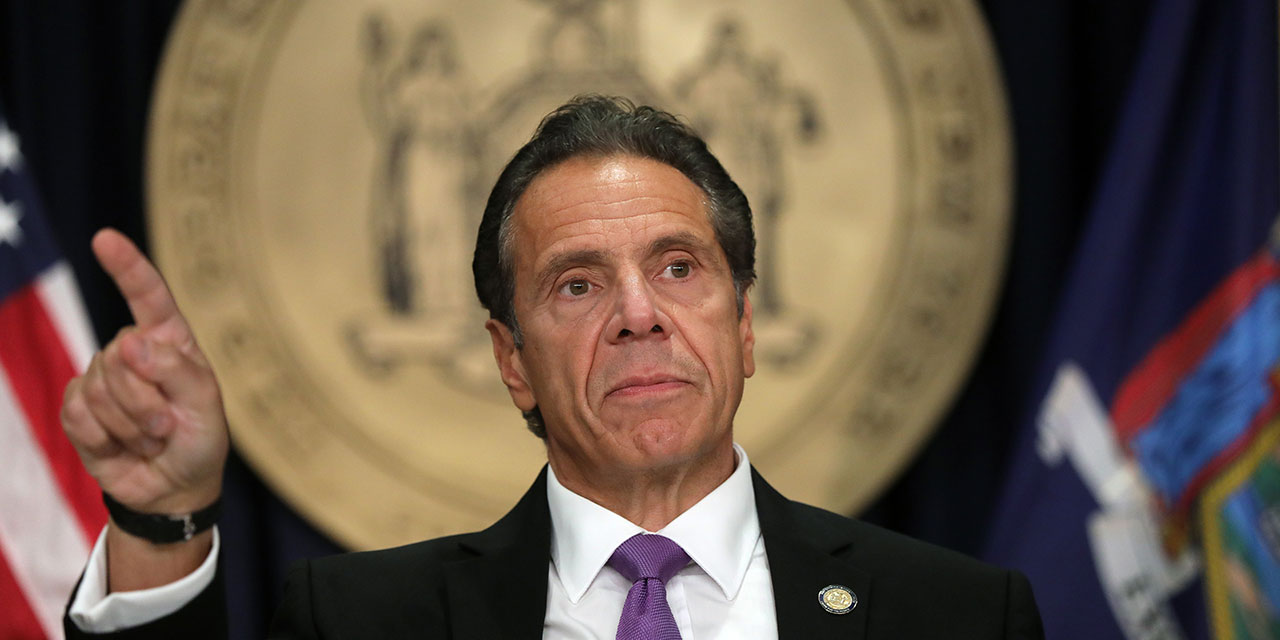New York governor Andrew Cuomo has done it again. Following his earlier pledge to delay distribution of a prospective, FDA-approved Covid-19 vaccine in New York State until his own committee reviewed it, Cuomo has now labelled pharma giant Pfizer’s announcement that its new vaccine is showing 90 percent effectiveness and could be available soon “bad news.”
Yes, you read that correctly. Cuomo told George Stephanopoulos on Good Morning America that he will no longer confine his efforts to limiting vaccine access to New York State—he has been “talking to other governors across the nation” to stop vaccine distribution by the Trump administration until the Biden administration comes in.
Cuomo’s rationale is that Trump’s plan would rely on private-market mechanisms like hospitals and pharmacies to distribute the vaccine—the same places people routinely go to fulfill their health-care needs, including flu shots. Cuomo claims that will “leave out all sorts of communities that were left out the first time when COVID ravaged them.” These communities, he says, live in “health care deserts” where there is no Rite-Aid or CVS. “That’s what happened the first time with COVID.”
African-Americans have had higher rates of infection, hospitalization, and death from Covid-19 for many reasons, but lack of access to a local pharmacy is not one of them. Pharmacies are relatively common in urban areas and, in any event, they had no magic bullet in stock that would have alleviated the illness. Actual explanations for the disease’s disproportionate impact on blacks include higher rates of comorbidities that predispose them to severe Covid-19 illness; more prevalent employment exposure among blacks, who are only two-thirds as likely as white workers to be able to work from home; disproportionate concentrations of African-American populations in urban areas that the illness has hit hard so far; and perhaps other biological factors that make blacks more susceptible to coronavirus infection.
What actually happened “the first time” with Covid is that Governor Cuomo worsened New York’s death toll by forbidding nursing homes—where many elderly and sick people, the most vulnerable to Covid-19, live—from testing new admittees for active viral infections and from refusing to admit residents “based on a confirmed or suspected diagnosis of Covid-19.” The governor also delayed New York City mayor Bill de Blasio’s school-closing and shelter-in-place orders to score political points by demonstrating who’s boss in New York.
When asked how presumptive President-Elect Joe Biden could do better, Cuomo claimed that “there was no mobilization of the government” under Trump and reiterated that private mechanisms would miss some communities. In fact, the Trump administration’s plan calls for the purchase and cost-free provision of vaccines by the federal government and centralized distribution to state, tribal, and local health authorities that the CDC has worked with for decades, as well as to commercial partners. Missing from Cuomo’s answer was any discussion of what a Biden plan might entail or how it would differ from Trump’s.
Cuomo notwithstanding, most Americans hope that Pfizer and other companies will soon have safe and effective vaccines approved by the FDA. Delaying their distribution and use will needlessly prolong economic and social upheaval and result in thousands of avoidable deaths, many in the same communities for which Governor Cuomo professes concern. That would be a steep price to pay for the sake of partisanship and the satisfaction of one man’s continued desire to demonize Donald Trump.
Photo by Spencer Platt/Getty Images
